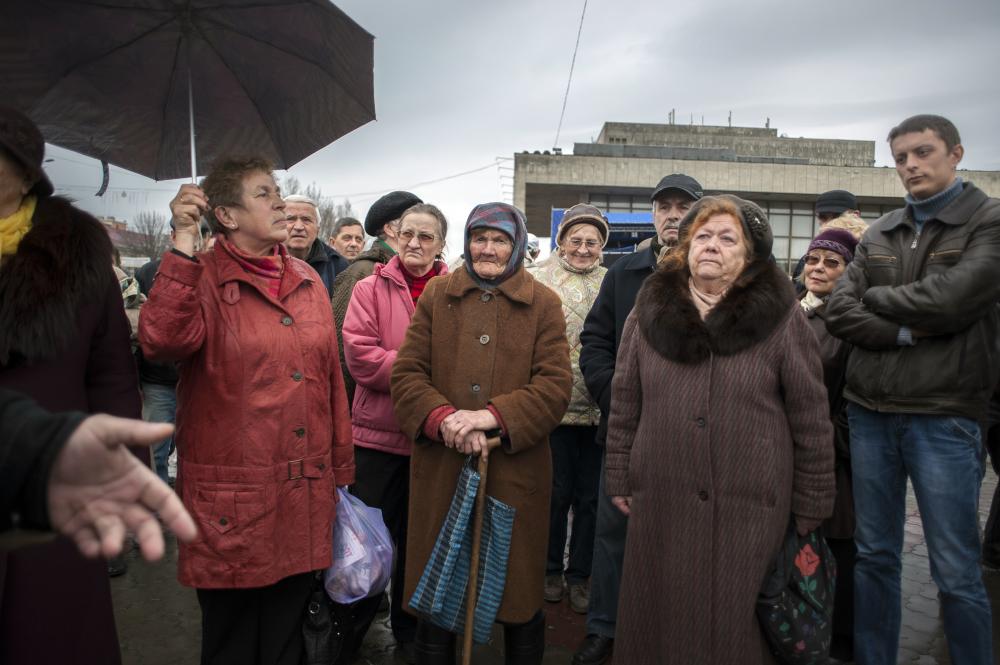
NOISE AND REPORTING
The crisis in Crimea has triggered a state of high dudgeon among the political classes here in Washington. Many seem to blame a perceived "weakness" on the part of President Obama for Vladimir Putin's aggressive maneuvers in Ukraine. At the Pulitzer Center, we support "boots-on-the-ground" journalism as the best antidote to noisy but often uninformed commentary. Grantees Dimiter Kenarov and Boryana Katsarova are in Crimea providing a nuanced look at the deeper roots of the crisis.
"For many Russian-speakers in Crimea, Russia may not be necessarily a fatherland they dearly love, as much as a sugar daddy they desperately need -- one that provides cheap gas, endless streams of money to prop up the dilapidated, energy-inefficient economy, and one that keeps the prices of community services like phone, water, and electricity at least somewhat affordable," writes Dimiter in a dispatch for Foreign Policy. "For all the talk of minority rights and Crimean autonomy, in interviews, many of the residents here are just as quick to change the subject to poverty and their own dire situations, to which they feel 'the West' — often conflating both western Ukraine and Western Europe — can provide no answers."
Reporting from Crimea hasn't been easy. At the border Dimiter and Boryana were stopped by Russian troops and non-uniformed "irregulars" who relieved them of their body armor, helmets and other safety equipment. A few days later, after witnessing Russian soldiers ransacking equipment from foreign television reporters, they were roughed up by the soldiers and masked gunmen who took their cell phones and cameras at gunpoint.
"We are both a little shaken, but feeling OK now. Boryana has a second camera and I just bought a new phone," Dimiter told us. "What seems very worrying is that attacks on foreign journalists are becoming more and more frequent. There seem to be absolutely no rules here."
JOURNALISTS IN JEOPARDY
Government-sanctioned attacks on journalists are not, unfortunately, a rarity. Reuters journalist and Pulitzer Center board member David Rohde tells the PBS NewsHour's Jeffrey Brown that at least 211 journalists are currently imprisoned—a 50 percent increase over the last five years.
"This is just people in power silencing journalists who are writing stories that hold them accountable," said David, who in 2008 was kidnapped by the Taliban in Afghanistan and held for seven months in Pakistan before he managed to escape.
THE LAST CASE OF POLIO
There have been no reported cases of polio in India since January 2011—a clean bill of health for more than three years. Later this year the World Health Organization will officially remove India from its list of polio-endemic countries. Only Afghanistan, Pakistan and Nigeria remain on the list.
This is a remarkable achievement for India, and as Pulitzer Center grantee Esha Chhabra writes in The New York Times, India is trying to turn this success into a blueprint that can be used in its less successful battles against measles, rubella hepatitis B, TB and the like. Esha's reporting project is part of the Pulitzer Center's long-term commitment to in-depth, solutions-oriented journalism on global health issues.





